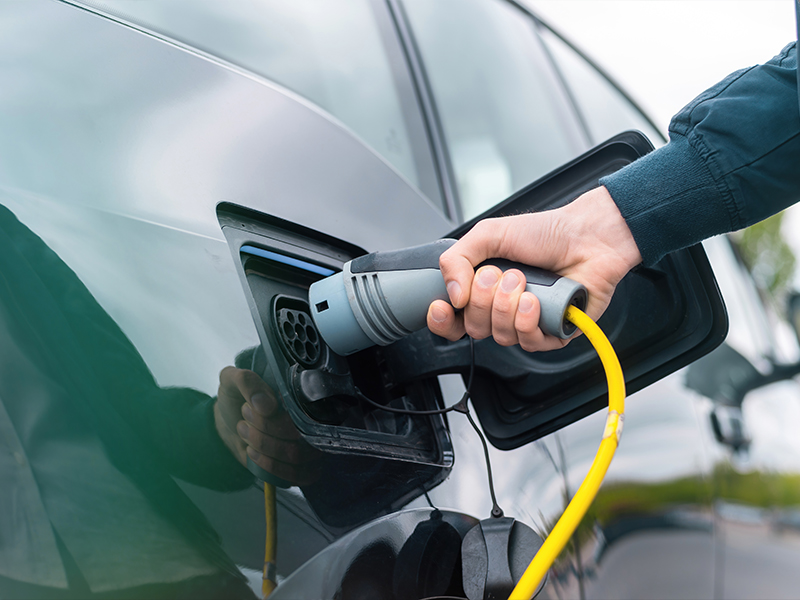The 5 best electric vehicles technology in 2020
Electric vehicle technology has propelled the automotive industry forward for over a century, and it will completely transform it during the 2020s. Your options for a new electric vehicle in 2020 are more diverse than ever. There will be an EV for nearly every vehicle type weather its two-wheeler or four-wheeler. But the increased choice also makes it harder to choose. Zikshaa has selected five top Electric cars that you’ll want to consider.
These vehicles have a range of at least 200 km — which our experts have found to be easily sufficient for EV driving — and are on sale now or will be soon. We’ve arranged them in descending order of ranks.
Note: An important thing to remind us that we’re only included cars that have been officially announced, or models we’re confident are in the pipeline. We’ve largely ignored the countless, unverifiable rumours spreading around the internet.
5. Audi e-Tron

Expected price: 54-56 lakh
Expected launch: July 2020
The Audi e-Tron SUV gets two electric motors, one on every hub. The one on the front makes 125 kW while the back engine makes 140 kW, with the joined aggregate of 265 kW or 355 bhp.
The pinnacle torque yield is 561 Nm. It comes with normal and boost mode. In the boost mode, the power output goes up to 300 kW or 408 bhp. The Audi e-Tron SUV has a range of 400 km on a solitary charge as per WLTP cycle and can contact a top speed of 200 kmph. Additionally, the 0-100 kmph run is done in 6.6 seconds in the typical mode and 5.7 seconds in the boost mode.
4. Mahindra Ford Aspire EV

Expected price: 10-12 lakh
Expected launch: Nov 2020
With Mahindra Ford tie-up Mahindra’s 2nd electric sedan will be based on Ford Aspire. A high-voltage 380V framework is being created to coordinate a bigger battery back. Mahindra is preparing a 60kW (81.5hp) system alongside a greater 25kWh battery pack. The organization is focusing on a genuine scope of around 200km. So one can consider this for buying in 2020.
3. MG ZS EV

Price: 20.88 lakh
Launch: Launched
The MG ZS electric SUV includes a three-stage perpetual synchronous electric magnet motor which makes power likeness 140.7 bhp at 3,500 rpm and has a pinnacle torque yield of 353 Nm at 5,000 rpm. The force originates from a 44.5 kWh battery which is IP67 appraised which implies it is impervious to the residue and waterproof up to a profundity of 1 meter and it offers an ARAI guaranteed range of 340 kilometres, which is very respectable. It is stacked with highlights as well and obviously, is an connected car as well.
2. Hyundai Kona

The Kona electric comes with a 39.2 kWh battery pack that promises an ARAI certified range of 452 km on a full charge. According to Hyundai, this EV can go from 0 to 100 km/h in a matter of 9.7 seconds. When plugged into a 50 kW DC fast charger, it will take just 57 minutes for the batteries to juice up to 80 per cent. However, a 7.2 kW AC charger will charge the batteries to the full in a matter of 6 hours and 10 minutes.
Honourable mention:
Volvo XC40 Recharge EV

Expected launch: Dec 2020
Expected Price: 35 lakh
The XC40 Recharge is expected to make it to India. It features a 408hp twin-motor setup with a claimed range of more than 400km. The four-wheel-drive electric SUV features two 204hp electric motors, one mounted on each axle, that combine to offer 408hp and 660Nm of torque. It largely retains the exterior and interior styling of the conventional XC40, albeit with the addition of a new sealed fascia. Most of the interior bits are shared too. Volvo may bring the SUV to India via the CKD route.
1. Nissan Leaf

Expected Launch: Nov 2020
Expected Price: 30 lakh
The standard 2020 Leaf models accompany a 110-kW electric motor that siphons out 147 torque to the front wheels; a 40-kWh battery pack gives the force. Leaf Plus models accompany a gutsier, 214-hp 160-kW electric motor and a bigger 62-kWh battery. The previous version with a 7.4-second zero-to-60-mph time at the test track, nonetheless, it feels perkier than this number proposes because of the prompt force conveyance of the electric motor.
Talking about reviving, the Leaf can be connected to a customary 120-volt outlet or a 240-volt outlet, yet the charging times differ significantly between the two. On a 240-volt association, Nissan says both the standard Leaf’s battery and the bigger ones in the Leaf Plus can be renewed in seven hours.
The standard Leaf models all come with a 40-kWh battery which provides a relatively limited range of 240 km. This might be enough range for some drivers with short commutes. However, the Leaf Plus provides more driving range i.e 365 km thanks to its larger 62-kWh battery pack.
So, Nissan leaf comes at top weather it is about the range or the performance. One can consider this if they are looking for mid-range cars.
Want to learn how electric cars work?
Click to learn more: https://zikshaa.com/electric-vehicle-workshop/
External links for reference: https://www.linkedin.com/pulse/career-electric-hybrid-vehicle-sales-nirajan-kashyap/



Do Mention about the recently launched Tata Nexon EV powered by Ziptron. Nexon has always been a safe car as it has been rated 5star by Global NCAP. Also this is currently the cheapest Electric Compact SUV in India.